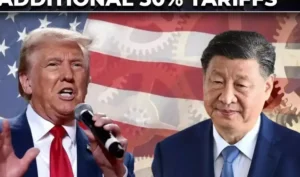After protracted discussions on the conclusion statement that had been stalled over a mention of the Ukraine issue, Prime Minister Narendra Modi declared on Saturday that the G20 member nations had accepted a consensus leaders’ declaration for their summit.
“Friends, we just received some fantastic news. There is unanimity on the New Delhi G20 Summit Leaders Declaration thanks to the diligence of our teams and your support.” Modi said in a brief broadcast remark during the summit’s second session.
Modi then made the suggestion to embrace the leaders’ declaration and declared: “I announce that this declaration is adopted.” The other G20 leaders noisily applauded as he then slammed the desk and hammered the gavel three times. Modi continued, “On this occasion, I send my sincere gratitude to ministers. Sherpas, and other officials who worked hard to make this happen and who deserve commendation.
The process by which the G20 governments agreed on the presidents’ proclamation, particularly the problematic section relating to Russia’s invasion of Ukraine, was not immediately clear. Joint remarks have been delayed by the problem at every ministerial gathering held under India’s chairmanship. Finance Minister Nirmala Sitharaman expressed her concern for the #GlobalSouth. And the @PMOIndia’s emphasis on human-centric globalization in a post on X, previously Twitter. I appreciate the support and collaboration of all G20 members.
G20 Summit

In an effort to resolve the standoff on the matter, the Indian side distributed fresh language to the G20 member states. That would include the Ukraine situation in the drafting leaders’ proclamation. People from a G20 member state and a G7 member state reported that a draught of the declaration was made on Friday. Which most G20 governments had approved, had left the paragraph on the “geopolitical situation” or the Ukraine issue blank.
75 additional draught paragraphs, covering topics including cryptocurrency regulation. Multilateral development bank reform. And funding for climate change transition was agreed to by the G20 governments’ negotiators.
“This [Saturday] morning, the Indian side distributed the first paragraph on the Ukraine problem to the other G20 members. Right now, the other states are giving it some thought. On condition of anonymity, a representative of a G7 nation had earlier stated that several nations had no issues with the language.
Despite many meetings on Thursday and Friday, the sherpas, or personal representatives of G20 presidents, were unable to agree on the paragraph about Ukraine. Following the completion of the fourth and final sherpas’ meeting in Manesar on September 6, these sessions took place. People observed how “tough” the conversations had been throughout. And how the Ukraine situation had continued to be the major obstacle to consensus for days.












Be First to Comment